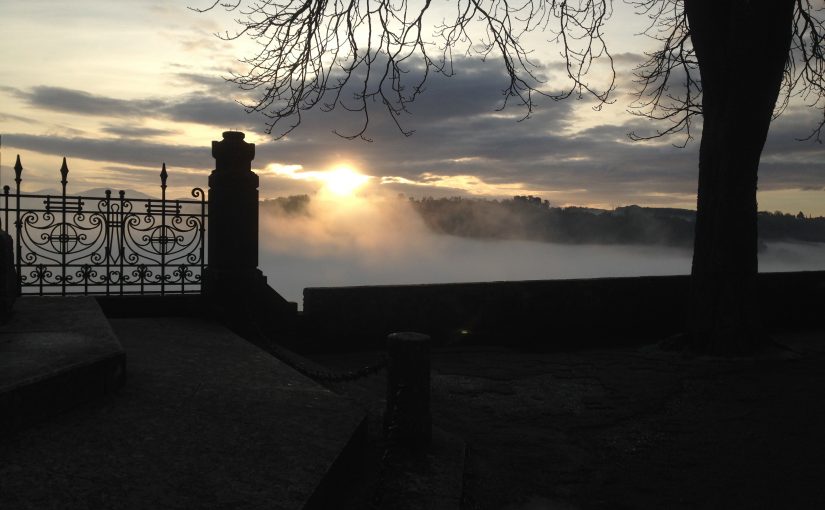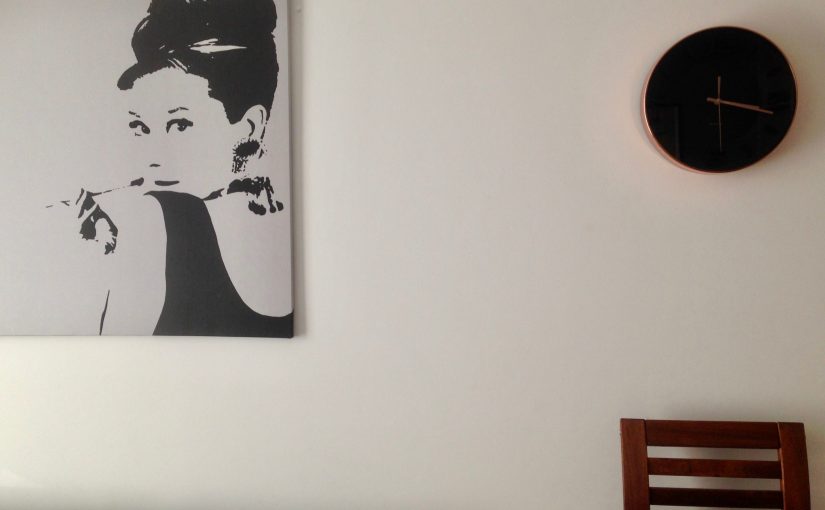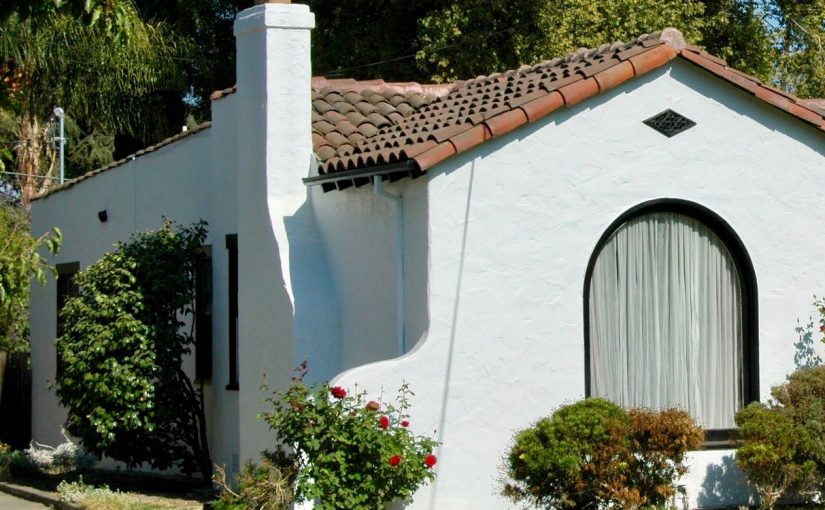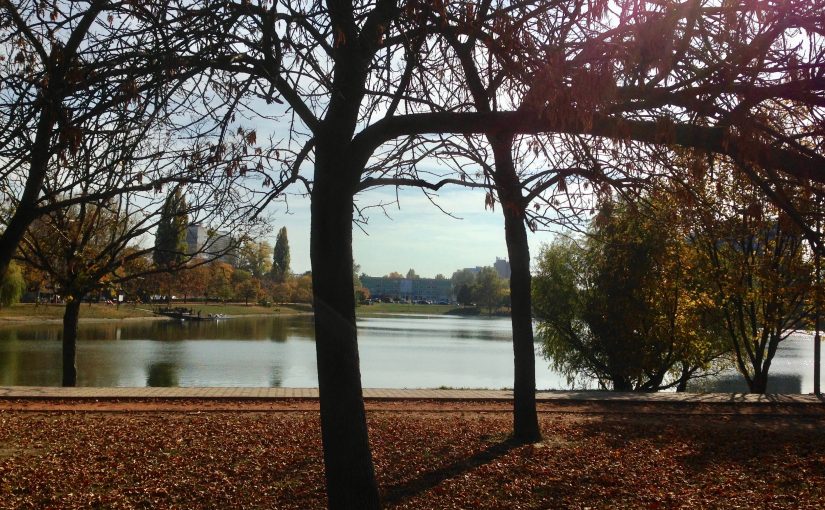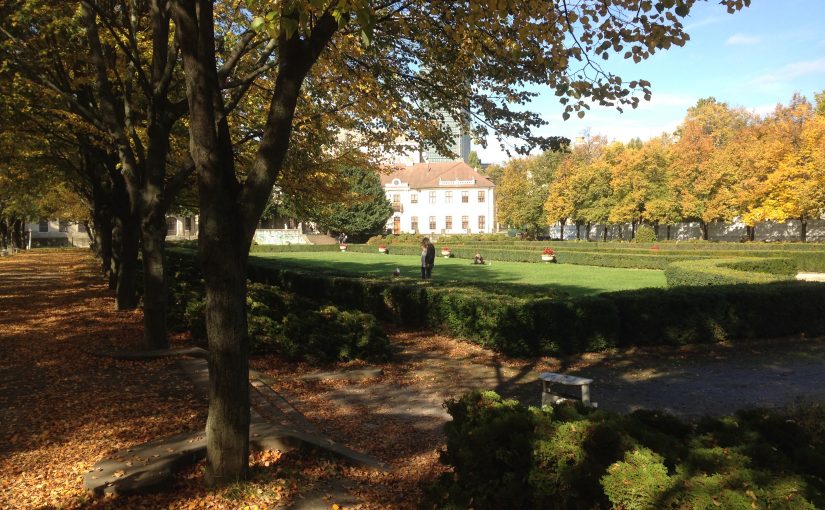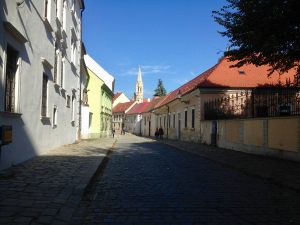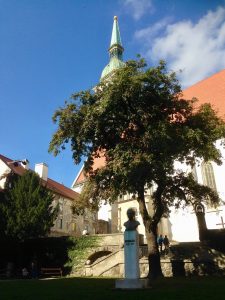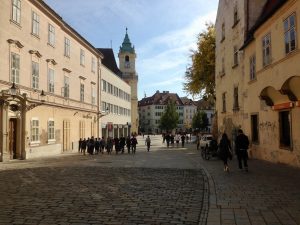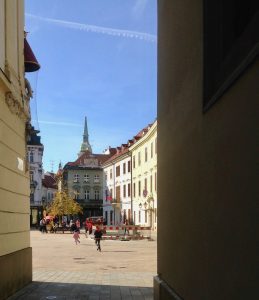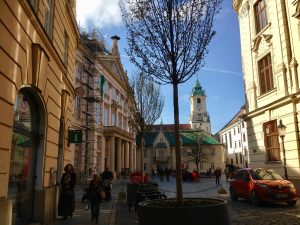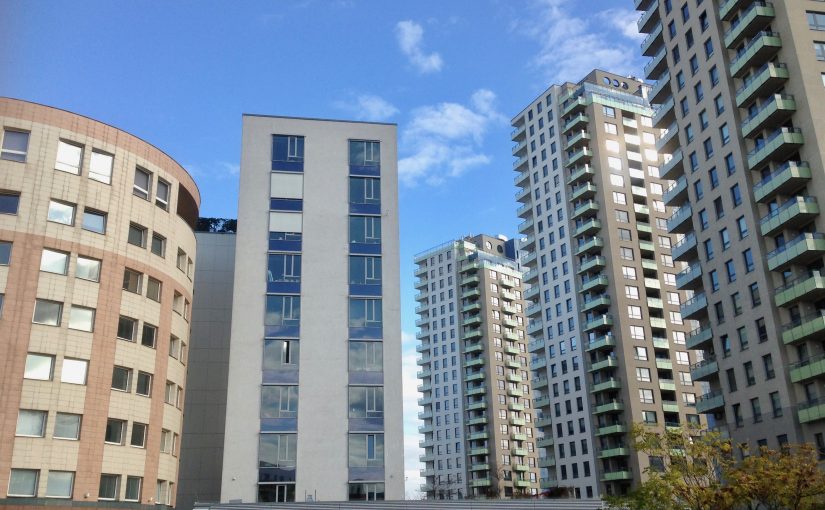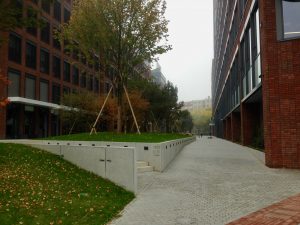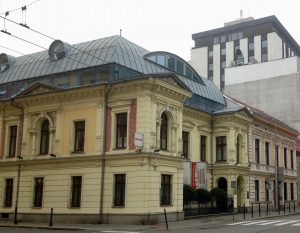Being in Orvieto again is like sliding into a warm bath after a long hike, all of it uphill.
Sunday was spent at the Vienna airport waiting from late morning for a five o’clock flight. I was thirsty all day, and early discovered a refreshing pomegranate tea at a food concession called Henry. The young people who rang customers out were all charming and kind. Over the course of five hours I returned thrice, and none of them was ever visibly at work a second time. They seemed to have the shortest shifts on record.
Sunday night, I stayed at a hotel called Isola Sacra in the town of Fiumicino. The staff there were also kind, but on longer shifts. For supper I ordered a pinsa; Roman-style pizza. When I order pizza here I always specify già tagliata, pre-cut, because I am not sufficiently practiced to cut my way through a pizza faster than it becomes cold. I forgot to ask, so, with apologies for my strange American preferences, requested of my waiter that the pinsa be returned to the kitchen and sliced into wedges. He moved the pinsa to the middle of the table and with astonishing speed divided it into bite-sized chunks, then to protect the crust, drained a teaspoon’s worth of juice onto a small plate.
When I had finished he put his arm around me;
– Did you enjoy it?
– It was delicious. And so easy to eat.
I felt strong and stable all day, a little goofy as it became apparent that I needed to eat, and strong again within a half hour of dining. Looking back towards Friday, my estimation on Sunday evening was that I could never have managed the weekend in Vienna with all its adventures, crowds, and unknowns even a week earlier.
Since returning to Orvieto, my days have been filled with home chores, walking, and visits. In my house, where a muscle memory of every awkward corner, low sofa, and coordination challenge is very much alive, I am able to compare in detail how well I function now with my performance before Bratislava. Though movement is not perfectly free or without its jolts and difficulties, the increased fluidity is profound and undeniable.
While walking the town’s cobblestones, coming into gait still takes five or ten minutes, but the warm up is not as clumsy, and once warm, maintaining the gait takes less attention and effort than it did three weeks ago. In fact, I have to be cautious not to assume I can behave as if all were perfectly well. I sometimes feel so free I’m tempted to forget that waltzing and jumping jacks are not soon within the realm of likely pursuits.
And I have energy. Energy to go all day with only a brief nap. Energy to walk the length of the town on errands, return home to empty my shopping bag, hang laundry, and go out and walk it again. I haven’t been able to claim that much stamina for at least a year.
But despite a respite of a week or so ago, lower back pain returns – more localized, even lower down, and more specific as to what movement triggers it. I saw Michele the Shiatsu Genius today. He gave a treatment exactly sensitive to what is going on. After previous sessions he had warned that the pain might increase for a day or two before the back felt better, and I asked if that would be the case this time.
– Probably not. Your body was much more receptive to the treatment. I’m convinced now that the problem is in your intestine. An unbalanced gut and lower back pain are often associated.
I may be on the right track.
Since Sunday, the Theatrical Light Cue metaphor seems to hold, though the count towards execution feels awfully slow. Some of that perceived slowness is also my impatience to know how the threads of the plot come together. As a director I’m used to knowing the outcome of every story I tell, even before the work on it begins. Here, I’m compelled to follow, observe, and wait. Like any good story, there are also twists and turns and reversals. And like many good stories, there are ambiguities along with the revelations.
The sixteen days in Bratislava was almost a silent retreat. Outside of this blog, I spoke barely fifty words a day. I used my voice so seldom, in fact, that it became a throaty whisper. Vocal degeneration is a symptom of PD, so I was happily surprised on Monday, when I had friends to speak with (and frankly overdid it) that the voice came back. By Tuesday afternoon it was relaxed and full, but by evening it was starting to tire. Today was vocally much more moderate, and by evening my voice sounded more familiar than it has for a long time.
This is the last of the daily posts, for now. I will write periodic updates as things unfold, at least one a week. Thank you for reading, and for your interest. It has been enormously helpful to have had this conversation.
I hope the bones of this report may prove helpful to others contemplating a healing alternative.
